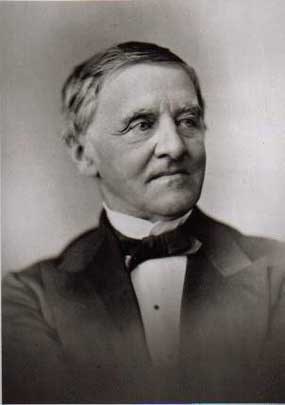
Samuel Jones Tilden was a leading political figure of the 19th Century. He served as Governor of New York State and was the Democratic candidate for president in 1876, perhaps the most unusual presidential election in United States history. Born in 1814 in New Lebanon, NY, Tilden was educated at what later was to become New York University, where he studied law. Admitted to the bar in 1841, Tilden was extremely successful as a lawyer, boasting many corporate clients, including several of the railroads. He became a strong partisan of Martin Van Buren in New York State Democratic politics. Tilden was a Free-Soiler, but unlike other Free-Soil Democrats of the 1850's, he did not join the new Republican party and later disapproved of the Civil War. As state Democratic chairman after 1866 he sought reform and gathered much of the evidence of corruption that broke up the notorious "Tweed Ring" in 1871. Elected governor of New York in 1874, he continued building his reputation for reform by attacking and breaking the "Canal Ring," individuals whom had made millions of dollars illegally from contracts for the repair and extension of the state's lucrative canals. Samuel Tilden died in 1886 in Yonkers, NY. In his will he left 3 million dollars toward the establishment a free public library in New York City. In 1895 this trust was joined with the Astor and Lenox libraries to form the New York Public Library. In 1917, after being known initially as Camp Rockaway, Fort Tilden was renamed in his honor.
|
Last updated: July 12, 2022
